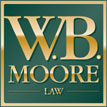Most of the time, both commercial and residential real estate transactions proceed without any major disputes developing along the way. However, when exceptions to this general rule arise, the financial, practical, and legal consequences of a contentious situation can be truly significant. It is, therefore, very important to be proactive when a real estate dispute begins to brew. By speaking with an experienced real estate attorney in a risk-free consultation setting, you can both build the strongest possible case on your behalf and potentially mitigate the consequences stemming from this situation generally.
It is important to remember that attending a risk-free consultation means that you’re asking a lawyer questions and seeking guidance with no strings attached. Meeting with a lawyer in this way neither obligates you to work with that individual moving forward, nor does it obligate you to pursue legal action if you determine that you are uninterested in doing so. As an experienced real estate litigation lawyer – including those who practice at Eric Siegel Law – can confirm, all too often, those affected by real estate disputes shy away from exploring their legal options until they absolutely have to because they are unsure of what a consultation entails. Just as you would consult with a surgeon about a cosmetic procedure with no strings attached to that informational session, so a risk-free consultation with a real estate attorney is offered with no strings attached as well.
Preparing for a Real Estate Litigation Consultation
Whether you’re thinking about filing a lawsuit or are being named as a defendant in another’s legal action, you’ll want to accomplish a few things in preparation for your legal consultation. If you haven’t already spent some time on the website hosted by the firm that you’re meeting with, do so now. You won’t be able to ask the firm informed questions about their approach to representation until you have a strong sense of how they conduct business.
Next, gather any and all documents that may help the attorney with whom you’re meeting get a better sense of the unique nature of your dispute. It is difficult to provide personalized legal guidance if the attorney assessing the situation doesn’t have access to all of the facts and the details/context linked to those facts.
Finally, take time to physically write down or type out any and all questions you may have about your legal situation. Don’t rely on your memory to champion your concerns in the moment. Everyone forgets things when they are stressed and it is important to know that you have all the information you need to make a decision about your situation once you’ve left your consultation.
